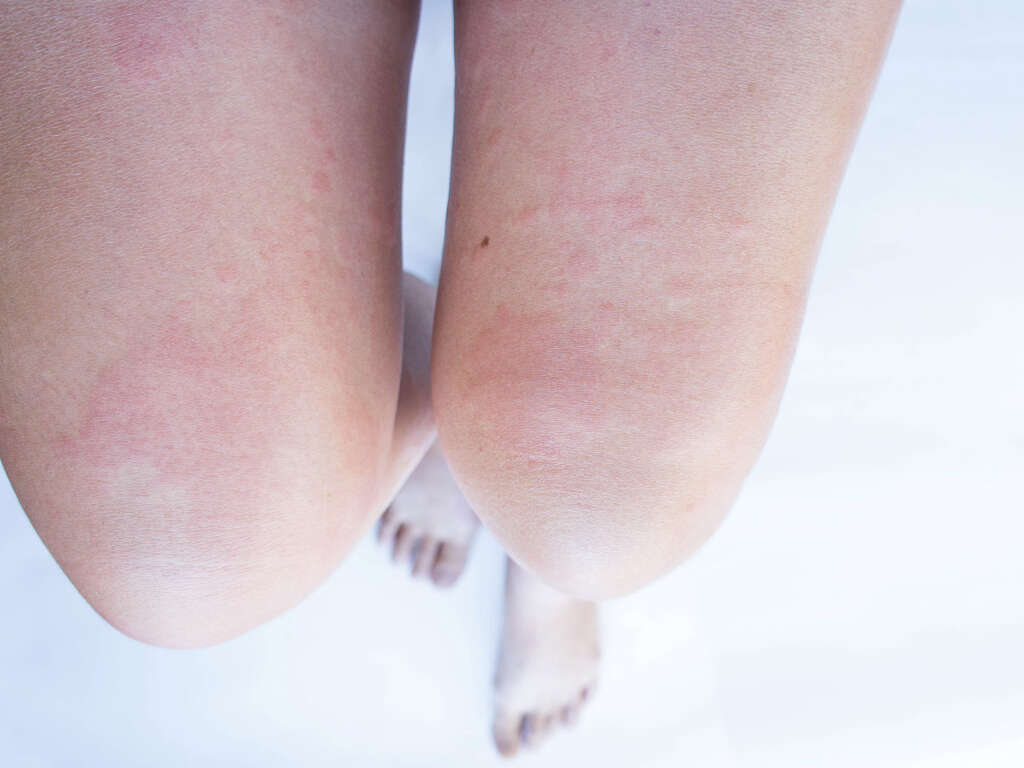Systemic Lupus Symptoms
Systemic lupus is an autoimmune disease that affects about 1.5 million people in the United States alone and is estimated to affect about 5 million worldwide. Similar to other autoimmune issues, systemic lupus occurs when the immune system does not function as it should and begins to mistakenly attack a person’s body instead of defending it.
While the disease can potentially affect almost anyone, it is more likely to affect women who are between teenaged to middle-aged. Unfortunately, there is no sure way to avoid getting systemic lupus, and the best preventative measure can be to simply be aware of how at-risk you may be and try to avoid the major triggers if at all possible.

1. What Is Systemic Lupus Erythematosus
While not the only type of disease known as lupus, systemic lupus erythematosus is the variety that most frequently occurs and is often referred to simply as “lupus.” The disease can be complex and there are many different ways that it can affect the body.
Symptoms of systemic lupus can range from extremely mild to quite severe and the disease may flare-up on and off over long periods. While it has the potential to be a life changing disease for those who have it, lupus is not a terminal condition.

2. How Does a Person Get Systemic Lupus?
The exact causes of systemic lupus erythematosus are not known. Unfortunately, this can make knowing exactly how to prevent it a challenging issue. There are a few different factors that may cause the disease to appear. Often, stresses such as being exposed to certain viruses or medications that your body responds unexpectedly to can be the first cause of systemic lupus appearing.
Heart and blood pressure medications can be common culprits of triggering the disease. Sometimes stresses that a person encounters either mentally, emotionally or physically can be all that it takes for the disease to appear. Being exposed to ultraviolet rays may also be a cause of systemic lupus.

3. Can Systemic Lupus Be Contagious?
While medical professionals may not know exactly why people get systemic lupus, they are certain that it is not a contagious disease and cannot be spread from person to person. The causes of this health issue are more likely the result of specific factors existing in a person’s environment that may trigger a predisposition they have for the disease.
One thing at-risk person’s should be mindful of is the potential of genetics to play a role in how likely someone is to develop systemic lupus. If you have a lot of direct family members with the disease you may want to use extra caution and watch for the signs of it showing up in your body.

4. How Does Systemic Lupus Affect the Skin?
Lupus can cause outwardly noticeable symptoms to a person’s skin and some cases of lupus may even affect the skin more than any other part of the body. Symptoms can include skin rashes, especially redness known as butterfly rash across the nose and cheeks of the infected individual. In some, but not all, cases there may also be some hair loss as a result of the disease.
The affected person may have discoloring around the fingernails, causing them to be paler than usual. Sores and other skin irritations besides butterfly rash can also be a common symptom and may appear anywhere, including inside the affected individual’s mouth. These symptoms are unpleasant, but they can often be relieved by avoiding certain triggers that cause the affected skin to be more irritated. While specific triggers may be unique for each affected individual, a common irritant for people with systemic lupus is exposure to the sun. Wearing protective clothing can be one of the best preventative measures to take to prevent flare-ups. Some noteworthy issues that can occur in more unusual cases of lupus infections are round rashes that can get quite large and may not heal well or blistering of the skin. These issues are rare, however, and generally only apply to very serious cases.

5. How Does Systemic Lupus Affect the Body?
Besides skin problems, lupus can have a variety of other associated symptoms. Affected individuals may find themselves feeling especially tired or fatigued. Other common symptoms can be arthritic swelling of the joints and overall feelings of discomfort. While these can be some of the most well-known symptoms, the disease presents itself differently in almost every case and people with lupus may also find that they are suffering from unexpected fever, weight loss, or headaches.
If the stomach area is especially affected, nausea may be one of the more common symptoms. On the other hand, if the disease manifests more in the head and brain area, vision problems, memory issues, and seizures may become more of a risk.

6. Is Systemic Lupus Dangerous?
While systemic lupus erythematosus is more uncomfortable than dangerous on its own, it can be a cause of more serious health concerns down the road. Anyone affected by the disease should be aware that it can be correlated to an increased risk of strokes or heart attacks later in life, especially if a person has other genetic or lifestyle issues that also put them at risk. There also may be a much higher chance of developing issues with the kidneys or experiencing blood clots and serious inflammation.
While these health issues can be frightening, it is important to keep in mind that having systemic lupus is not an automatic determinant that a person will experience more serious problems. Preventative measures and lifestyle choices can go a long way to prevent these issues from ever appearing. As with anyone who has a weakened immune system, people with systemic lupus may experience increased health risks as they age. They can be especially susceptible to memory problems or other age-related issues, which should be watched for over time

7. Is There a Cure for Systemic Lupus?
Sadly, as of now, systemic lupus is a chronic disease for which there is no cure. This doesn’t mean that people suffering from the disease can’t live a normal, full life. With proper care and diligence, most of the symptoms of lupus can be alleviated. New medical research is being done almost constantly and hopefully, treatments and medications for lupus as well as other chronic diseases will only improve over time.
While there is no evidence that the child of a person with systemic lupus is sure to get the disease, they can be more at risk than the average person. It is worth noting that in some, but not all cases, systemic lupus may increase the chances for complications with pregnancies and the potential for birth defects.

8. Are There Medications for Systemic Lupus
There are many medications that can help people with systemic lupus. Skin creams can be one of the best ways to treat commonly occurring rashes, and in some cases, steroidal creams may be prescribed. Affected person’s may also take specific anti-inflammatory drugs, in some cases similar to those that are prescribed to people with malaria.
Anti-inflammatories can help ease pain in the body, specifically in the joints. In other cases, biologic medications or immune system suppressants may also be recommended by doctors. Most, if not all, of these medications may be more or less helpful depending on individuals and how their bodies react to systemic lupus.

9. What Other Treatments Exist for Systemic Lupus?
Since systemic lupus can act very differently from person to person it can be best to try and create a personalized treatment plan for every individual. If you suspect that you may be starting to experience symptoms of systemic lupus it’s best to get in contact with your doctor as soon as you can. The earlier treatments are put in place the less likely a person is to suffer from the more extreme symptoms of the disease. Regular appointments can be key to keeping up with new developments and adjusting the treatment plan as needed.
Some common treatments for lupus can be preventative care, such as avoiding stress and protecting skin from the sun. Counseling can be a good option for people suffering from lupus as it can give them a safe place to work through the mental and emotional problems that can come from living with a chronic disease as well as alleviate stress.

10. How Can People With Systemic Lupus Maintain a Healthy Lifestyle?
Certain lifestyle activities can play a surprisingly big role in how invasive systemic lupus is into a person’s life. Regular physical activity and being mindful of the stresses of everyday life can be a great way to avoid stress-related flare-ups. It is never a bad idea for those with lupus to make sure they are putting aside plenty of time for rest and eating a healthy diet.
Taking advantage of resources that may help alleviate symptoms, such as medications, and pain-relieving activities, such as yoga or acupuncture, can also be beneficial. Working with a doctor to figure out what kind of lifestyle choices and treatments will best serve each individual case of lupus can help affected people to develop a routine that works for them











